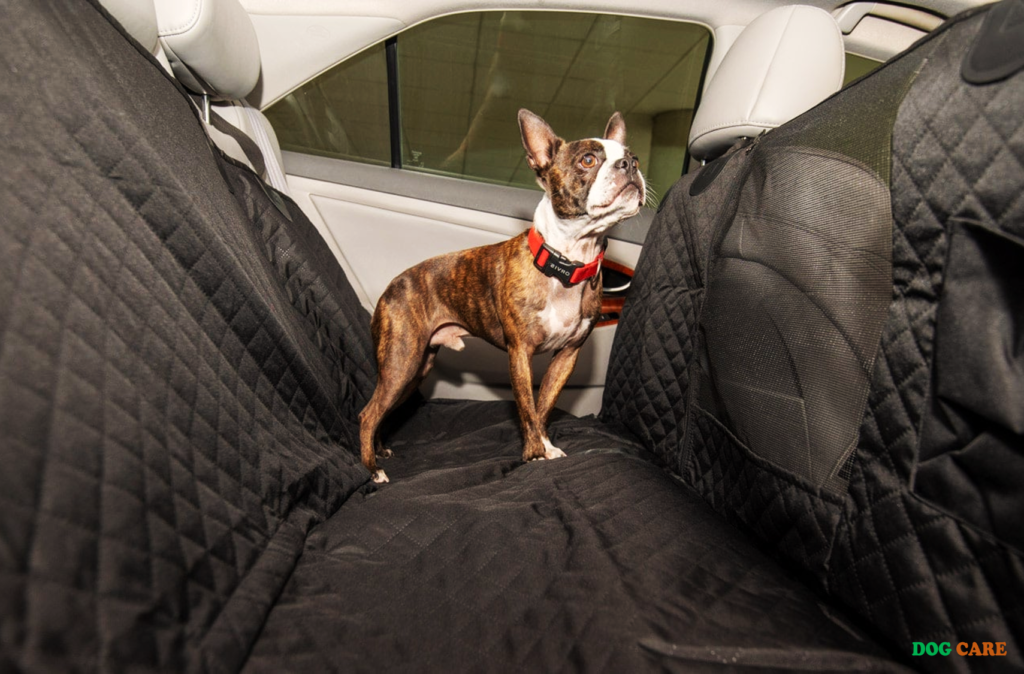Newborn Puppy Care Without Mother: Newborn puppies can be cared for without their mother by providing them with proper nutrition and warmth. We will discuss tips for caring for newborn puppies who may have been orphaned or separated from their mother for various reasons.

Preparing For Newborn Puppies
Welcome to the exciting world of newborn puppy care without a mother! While it may seem daunting at first, with the right preparation and care, you can ensure the well-being of these tiny furballs. In this blog post, we will guide you through the essential steps you need to take to ensure a warm and safe environment for your newborn puppies. So, let’s get started!
Creating A Warm And Safe Environment
Your little newborn puppies need a warm, cozy, and safe space to thrive. Here are a few tips to create the perfect environment for them:
- Choose a quiet location: Find a calm and quiet room to set up their area. This will help them feel secure and minimize any stress.
- Temperature regulation: Keep the room at a comfortable temperature, around 85-90°F (29-32°C) for the first few days. Use a heat lamp or a heating pad set on low under a blanket for added warmth.
- Provide comfortable bedding: Line their space with soft, clean blankets or towels. This will give them a warm and cozy spot to rest and sleep.
- Avoid drafts: Make sure no drafts or cold air are entering their space. This can lead to hypothermia, which is dangerous for newborn puppies.
Gathering Essential Supplies
Having the right supplies on hand before the arrival of newborn puppies is crucial. Here’s a list of essential items to gather:
| Supply | Purpose |
|---|---|
| Pet scales | To monitor their weight gain and ensure they’re thriving. |
| Puppy formula | To nourish the puppies and provide adequate nutrition. |
| Nursing bottles or syringes | To feed the puppies and make sure they’re getting enough milk. |
| Puppy pads | For easy cleanup and hygiene maintenance. |
| Heat source | To keep the puppies warm, like a heating pad or heat lamp. |
| Soft blankets or towels | To create a comfortable sleeping area for the puppies. |
| Thermometer | To monitor the temperature in the room and ensure it’s optimal for the puppies. |
| Non-slip feeding dish | To provide a stable surface for feeding. |
By having these supplies ready, you’ll be well-equipped to provide the necessary care for your newborn puppies.
Feeding Newborn Puppies
When it comes to caring for newborn puppies without a mother, one of the most critical aspects is ensuring they receive proper nutrition. Understanding their nutritional needs, choosing the right milk substitute, and establishing a feeding schedule are key factors in their development and growth.
Understanding Their Nutritional Needs
Newborn puppies have specific nutritional requirements that must be met for them to thrive. Their first meal, known as colostrum, is vital as it contains essential antibodies that help boost their developing immune system. As they grow, puppies require a diet composed of adequate amounts of protein, fat, and carbohydrates to support their rapid growth and provide them with energy.
Choosing The Right Milk Substitute
When it comes to feeding newborn puppies without their mother, selecting the appropriate milk substitute is crucial. Ideally, finding a commercial puppy milk replacer that closely matches the nutrient composition of a mother’s milk is recommended. These milk substitutes can be found at most pet shops or veterinary clinics, providing the necessary balance of proteins, fats, and carbohydrates.
If commercial milk replacers are unavailable, there are homemade options that can be used temporarily. A mixture consisting of goat’s milk, boiled water, and other essential nutrients can be prepared. However, it is important to consult a veterinarian beforehand to ensure the homemade formula meets the specific needs of newborn puppies.
Establishing A Feeding Schedule
Establishing a feeding schedule is crucial for the healthy development of newborn puppies. Initially, they will require small, frequent feedings every two to three hours. As they grow older, the frequency can gradually decrease, but the portion sizes should increase.
Creating a feeding chart or using a timer can help keep track of the puppies’ feeding schedule and ensure they are receiving adequate nourishment. It is important to note that each puppy’s individual needs may vary, so monitoring their growth and consulting with a veterinarian is essential.
In conclusion, understanding the nutritional needs of newborn puppies, selecting the right milk substitute, and establishing a feeding schedule are critical components of caring for them without their mother. With proper attention and care, these precious little ones can flourish and grow into healthy, well-nourished dogs.
Keeping Newborn Puppies Clean And Healthy
Newborn puppies require special care to stay clean and healthy, even without their mother. Providing regular baths, gentle grooming, and a clean and comfortable environment are essential for their well-being.
Handling Hygiene Needs
Taking care of the cleanliness and hygiene of newborn puppies is crucial for their health and well-being. Without their mother’s assistance, you need to step up and ensure that their hygiene needs are properly managed. It is important to regularly clean the area where the puppies are kept. Use a mild disinfectant that is safe for their sensitive skin and ensure that their bedding is changed frequently to prevent the buildup of bacteria and odors. Additionally, you should establish a routine for cleaning the puppies themselves, using warm water and a gentle puppy shampoo to keep them clean and free from dirt or debris. Be extra careful when handling them to avoid any injuries or stress.
Monitoring Their Health
When it comes to newborn puppies, monitoring their health is of utmost importance. Without their mother, it is your responsibility to keep a close eye on their well-being. Regularly check their body temperature using a rectal thermometer, ensuring it stays within the normal range of 95 to 99 degrees Fahrenheit. Moreover, keep an eye on their weight gain to ensure they are growing properly.
Weigh them regularly on a kitchen scale and track their progress. A weight gain of around 5 to 10% per day is considered healthy. To ascertain their overall health, monitor their behavior and look out for any signs of illness. Common indicators of health issues in newborn puppies include lethargy, loss of appetite, diarrhea, or abnormal breathing. If you observe any of these symptoms, it is crucial to consult a veterinarian immediately.
Providing Appropriate Vaccinations
Vaccinations play a vital role in keeping newborn puppies protected against potentially harmful diseases. It is important to consult a veterinarian to determine the appropriate vaccination schedule for your puppies. Vaccines such as distemper, parvovirus, and adenovirus are commonly recommended.
Ensuring your puppies receive their vaccinations on time is crucial for their long-term health. It is also recommended to keep a record of their vaccinations to stay organized and easily keep track of when the next immunizations are due. Remember, by adhering to proper hygiene practices, monitoring their health closely, and providing appropriate vaccinations, you can ensure that newborn puppies without a mother receive the care they need to grow into healthy and happy dogs.

Promoting Socialization And Mental Stimulation
When caring for newborn puppies without their mother, it is essential to focus on promoting socialization and providing adequate mental stimulation. Socialization plays a crucial role in the development of puppies, helping them build healthy relationships with humans and other animals. Mental stimulation, on the other hand, keeps their minds active, preventing boredom and promoting overall well-being. Let’s explore some strategies to achieve both goals.
Introducing Basic Social Interaction
From an early age, puppies need to learn how to interact with people and animals to become well-rounded individuals. Here are some tips to help you introduce them to basic social interaction:
- Handle the puppies gently and frequently to get them accustomed to human touch.
- Expose the puppies to different people of varying ages and sizes to help them become comfortable around different individuals.
- Allow supervised interactions with friendly and vaccinated adult dogs to teach proper social etiquette.
- Gradually introduce the puppies to new experiences and environments to prevent fear or anxiety.
Encouraging Play And Exploration
Play and exploration contribute to a puppy’s mental and physical development. It is important to create opportunities for them to engage in playful activities and discover their surroundings. Here are some ideas to encourage play and exploration:
- Provide a variety of toys that are safe and suitable for their age, including chew toys, squeaky toys, and puzzle toys.
- Designate a puppy-proof area where they can freely explore and play without any hazards.
- Rotate their toys regularly to maintain their interest and prevent boredom.
- Engage in interactive play sessions with the puppies, using toys to mimic hunting and chasing behaviors.
Offering Gentle Training
Gentle training techniques are essential for teaching puppies basic commands and reinforcing positive behavior. Here are some guidelines for offering gentle training:
- Use positive reinforcement such as treats and praise to reward desired behaviors.
- Keep training sessions short, around 5 to 10 minutes, as puppies have limited attention spans.
- Focus on basic commands like sit, stay, and come, gradually increasing the difficulty as they progress.
- Avoid punishment-based training methods, as they can be harmful to the puppy’s mental well-being.
Frequently Asked Questions On Newborn Puppy Care Without Mother
Can A Newborn Puppy Survive Without Its Mother?
Yes, a newborn puppy can survive without its mother with proper care and nutrition.
What Should I Do If The Mother Puppy Is Absent?
If the mother is absent, provide warmth, bottle-feed with puppy formula, and clean after elimination.
How Often Should I Bottle-feed A Newborn Puppy?
Bottle-feed a newborn puppy every 2 to 3 hours, ensuring they consume the appropriate amount of formula.
What Temperature Should The Environment Be For A Newborn Puppy?
Maintain a warm environment for a newborn puppy between 85°F and 90°F to prevent hypothermia.
How Do I Stimulate A Newborn Puppy To Eliminate Waste?
Gently massage the puppy’s genital area with a warm, damp cloth to stimulate urination and bowel movement.
Conclusion
Caring for newborn puppies without their mother can be challenging, but with the right knowledge and dedication, it is possible to provide the care they need. By keeping them warm, feeding them puppy formula, and ensuring their nutrition and hygiene are met, you can help these little ones thrive.
Remember to consult with a veterinarian for guidance and support throughout the process. With your love and care, these orphaned puppies can grow into strong and healthy dogs.


